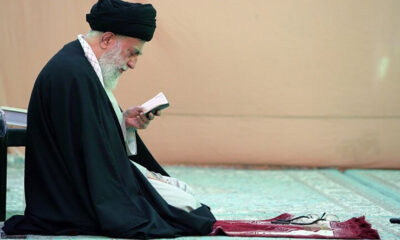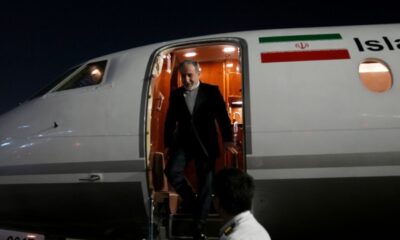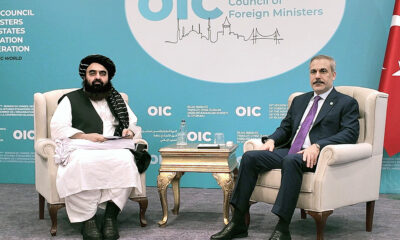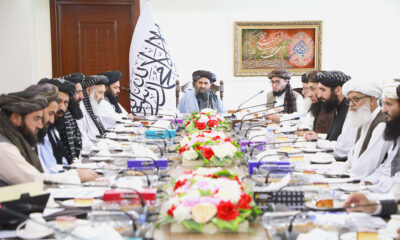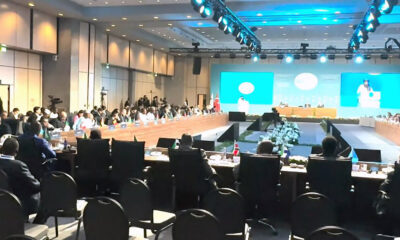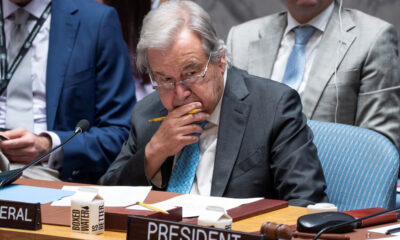Latest News
Deputy finance minister meets UNAMA chief over Afghanistan’s financial sector development
UNAMA Chief Otunbayeva acknowledged the critical role of microfinance in promoting economic resilience and job creation.
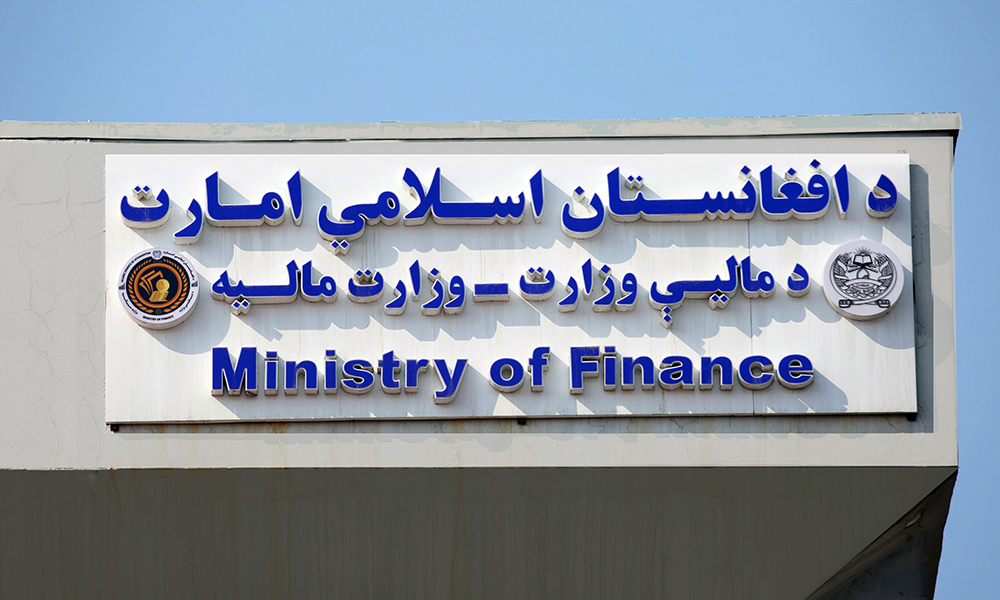
Sultan Mohammad Zubair, Deputy Minister of Policy at the Ministry of Finance, met with the UN in Afghanistan’s chief this week to discuss the need to strengthen the country’s financial sector.
During the meeting with Roza Otunbayeva, the Special Representative of the UN Secretary-General and Head of the United Nations Assistance Mission in Afghanistan (UNAMA), Zubair expressed appreciation for UNAMA’s ongoing humanitarian efforts in the country and voiced hope that continued collaboration would help lay the groundwork for implementing more development projects across the country.
The two sides also discussed the need to strengthen financial and development cooperation in the country. They also emphasized the importance of enhancing Afghanistan’s microfinance sector, improving the allocation of international humanitarian aid, increasing funding for development projects, and reinforcing ties with global financial institutions.
Zubair highlighted the ministry’s efforts in advancing the microfinance sector and stated that further expansion is a key priority.
He requested UNAMA’s support in strengthening the sector through capacity-building initiatives, the introduction of modern technologies, and raising public awareness.
UNAMA Chief Otunbayeva acknowledged the critical role of microfinance in promoting economic resilience and job creation.
She pledged that UNAMA would work to mobilize financial resources to support the sector and would also seek technical and capacity-building assistance from countries such as Japan, China, Malaysia, and Indonesia.
Otunbayeva reaffirmed UNAMA’s commitment to working closely with the Ministry of Finance to attract foreign investment, implement development projects, and create an enabling environment for the growth of the microfinance sector in Afghanistan.
Latest News
Iran’s Supreme Leader cuts off all electronic communications amid assassination fears
It also notes that communications with senior military officials are now being conducted exclusively via one close aide.
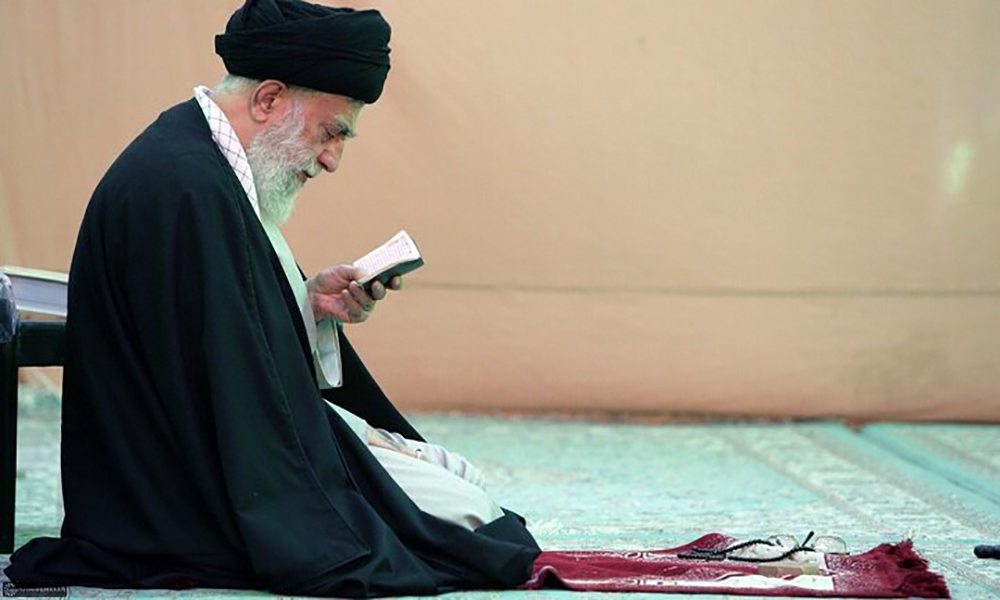
Iran’s Supreme Leader Ayatollah Ali Khamenei has reportedly severed all electronic communications and retreated to an underground bunker amid fears of an assassination, according to a report by The New York Times.
The report, citing intelligence sources and Iranian insiders, claims that Khamenei, 86, is now directing the country through a trusted intermediary while avoiding any traceable digital contact.
The move comes as Israeli airstrikes on Iran continue into their second week, heightening concerns within Tehran’s leadership about regime destabilization.
“Ali Khamenei… has cut all electronic channels out of concern for his safety,” the report states, adding that the Supreme Leader is preparing for “worst-case scenarios,” including a potential coup.
It also notes that communications with senior military officials are now being conducted exclusively via one close aide.
In a striking revelation, the Times reports that Khamenei has made contingency plans to flee to Russia if the regime’s stability collapses. The Iranian leader has also reportedly formalized decisions regarding both military command succession and his own potential successor, identifying three senior clerics as candidates should he die during the crisis.
There has been no official response from Iranian authorities regarding the report, which comes at a time of extreme internal and external pressure on the Islamic Republic following U.S. and Israeli strikes on key nuclear sites.
The situation remains fluid, and analysts suggest these developments point to the most severe leadership security measures seen in Iran since the 1980s.
Latest News
Muttaqi: Turkey holds a special place in the foreign policy of IEA
During the meeting, the two sides discussed bilateral relations between Afghanistan and Turkey, as well as key regional issues of mutual concern.
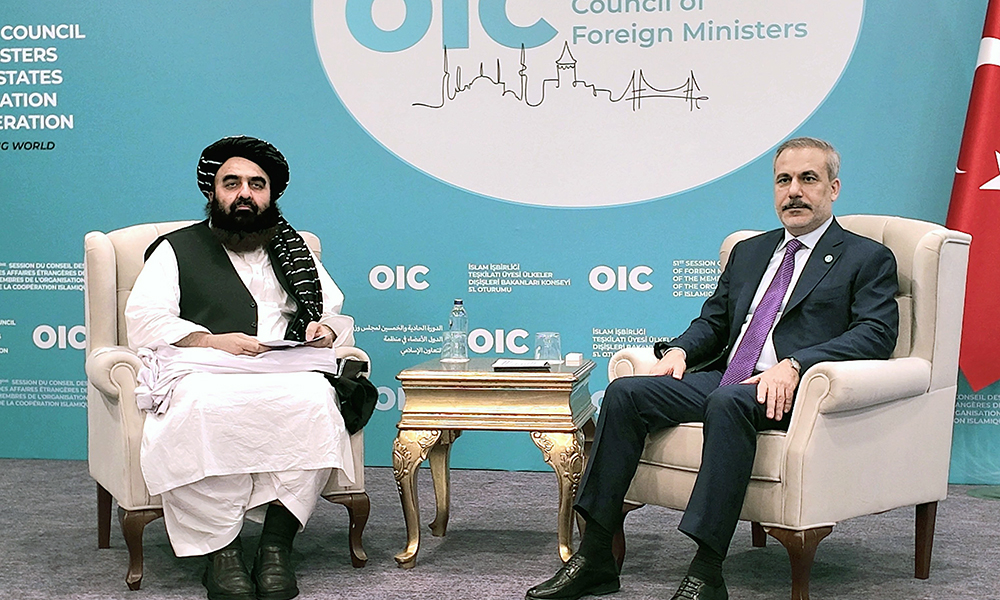
On the sidelines of the 51st Session of the Council of Foreign Ministers of the Organization of Islamic Cooperation (OIC) in Istanbul, Amir Khan Muttaqi, Acting Minister of Foreign Affairs of the Islamic Emirate of Afghanistan, met with Hakan Fidan, Minister of Foreign Affairs of Turkey.
During the meeting, the two sides discussed bilateral relations between Afghanistan and Turkey, as well as key regional issues of mutual concern.
At the outset, Muttaqi emphasized the deep historical and cultural ties between the two nations and described Turkey as having a special and strategic role in the foreign policy of the Islamic Emirate.
He called for expanded bilateral cooperation alongside the growing level of engagement between Kabul and Ankara.
For his part, Turkish Foreign Minister Hakan Fidan reaffirmed the importance of Afghanistan for Turkey and stressed the need to further strengthen cooperation across various sectors.
The meeting was held in a spirit of mutual understanding, with both parties underscoring the importance of continued dialogue and constructive collaboration in pursuit of shared interests.
Latest News
Muttaqi: Western sanctions hindering Afghanistan’s economic progress
He said the United States, by freezing the assets of Afghanistan’s central bank, has significantly hindered the country’s path toward economic development.
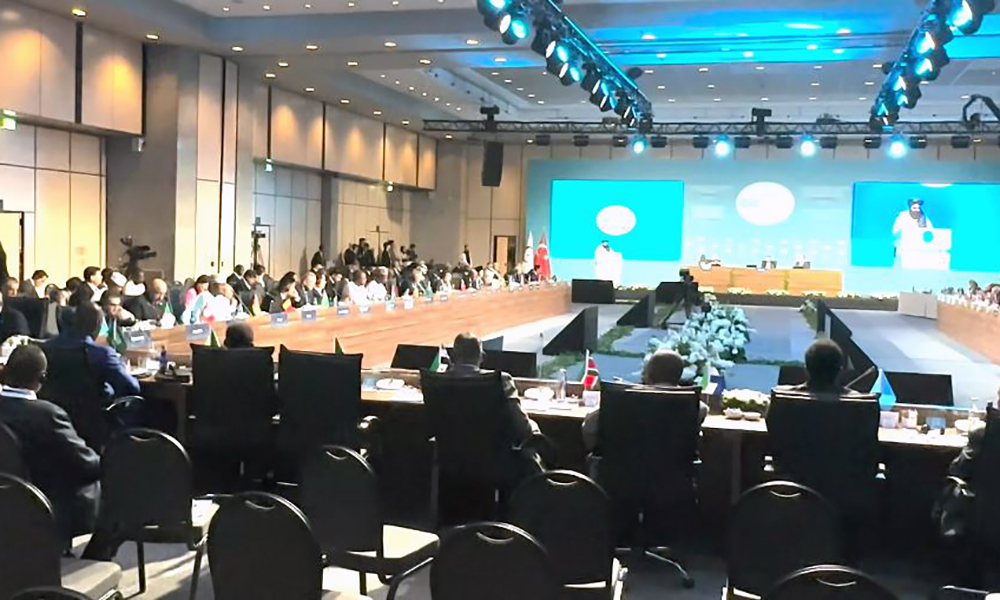
Amir Khan Muttaqi, Acting Minister of Foreign Affairs of Afghanistan, stated during the Organization of Islamic Cooperation (OIC) summit in Istanbul that Afghanistan is facing “illegitimate” sanctions imposed by Western countries.
He said the United States, by freezing the assets of Afghanistan’s central bank, has significantly hindered the country’s path toward economic development.
Muttaqi called on Islamic countries to take a proactive role in lifting the political and economic sanctions imposed on the Islamic Emirate of Afghanistan, urging them not to spare any effort in supporting Afghanistan during this critical time.
He emphasized that the Islamic Emirate has based its foreign relations on the principles of mutual respect and balanced engagement.
Highlighting Afghanistan’s strategic position in the heart of Asia, he stated the country is ready to serve as a vital hub for transit, trade, and economic connectivity among Islamic nations.
During the same session, Muttaqi also issued a stark warning regarding ongoing hostilities in the region.
He said that continued aggression and oppression by the Israeli regime against Palestine and Iran pose a direct threat to the security of the entire region and could lead to devastating consequences.
“I urge all member states of the Organization of Islamic Cooperation to take decisive action to stop the atrocities committed by the Israeli regime against Palestine and Iran,” Muttaqi said.
-
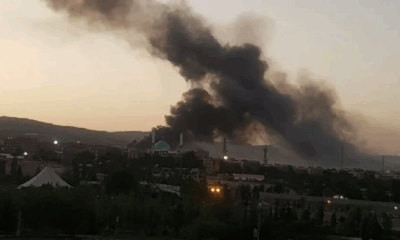
 Regional5 days ago
Regional5 days agoIran’s Khamenei rejects Trump’s call for unconditional surrender
-

 Sport5 days ago
Sport5 days agoAFPL: Aria Forj 3–2 Omid, Zaitoon 2–7 Zaher Asad
-
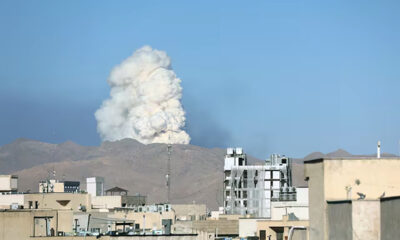
 Regional4 days ago
Regional4 days agoIran, Israel trade fresh air attacks as Trump weighs US involvement
-
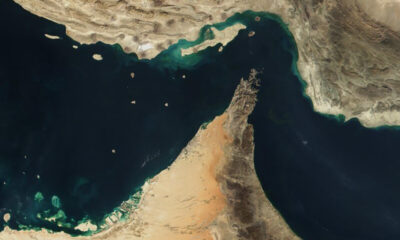
 Business4 days ago
Business4 days agoShips advised to keep their distance from Iran around Hormuz Strait
-
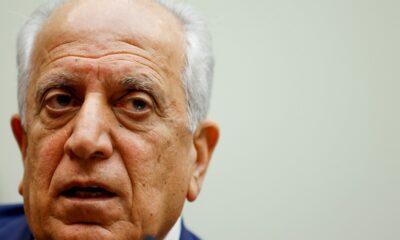
 Latest News4 days ago
Latest News4 days agoPakistan seeks partnership with US over terror threats in Afghanistan: Khalilzad
-
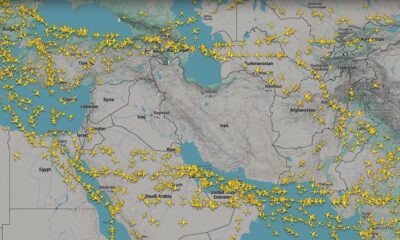
 Latest News3 days ago
Latest News3 days agoAfghanistan sees fivefold increase in overflights amid Iran-Israel conflict
-

 Science & Technology5 days ago
Science & Technology5 days agoTrump grants TikTok another 90-day extension to find non-Chinese buyer
-
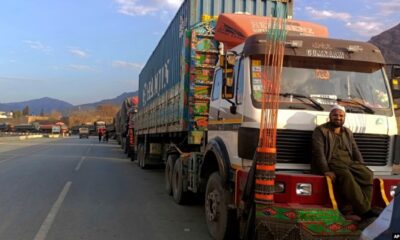
 Latest News3 days ago
Latest News3 days agoPakistan to issue one-year visas for Afghan drivers


